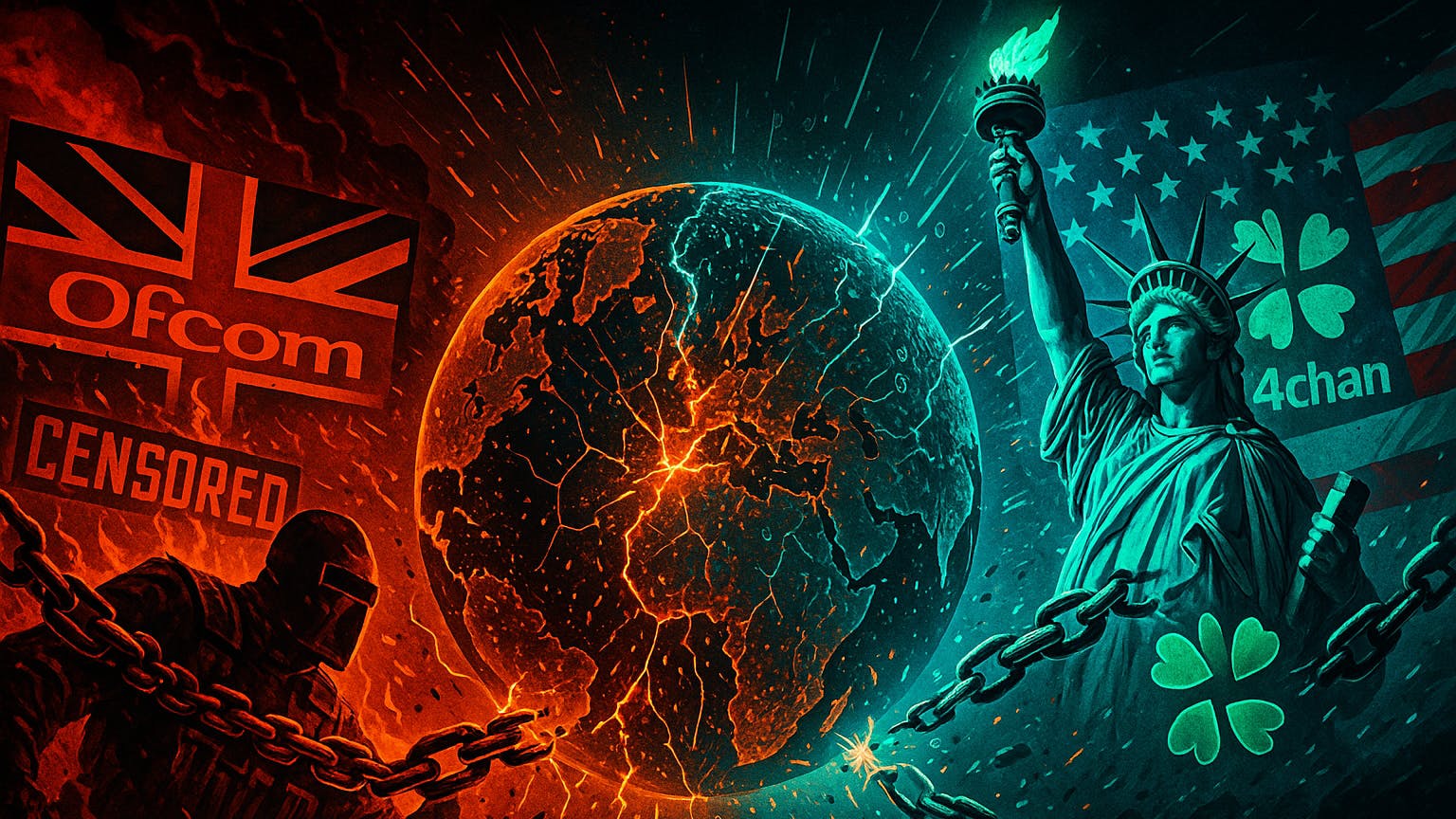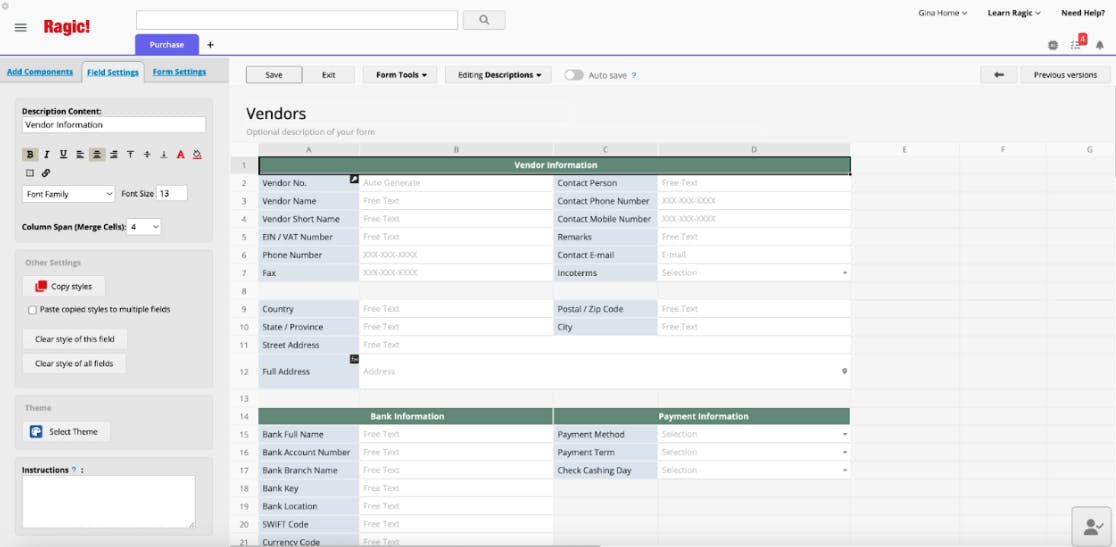In August 2025, the UK’s Ofcom slapped 4chan with a provisional £20,000 fine plus daily penalties, for allegedly failing to comply with the Online Safety Act. Regulators claim the site ignored statutory information requests and failed to protect users from illegal content.
4chan’s US-based lawyers fired back: “American businesses do not surrender their First Amendment rights because a foreign bureaucrat sends them an email.”They branded Ofcom’s move an“illegal campaign of harassment,” vowed to fight in US federal courts, and even briefed Washington to prepare for a sovereignty showdown.
This isn’t just about a chaotic message board.
It’s about the future of digital sovereignty: Can nation-states impose censorship laws across borders, or do free speech protections and decentralized protocols make such laws unenforceable?
🌍 The Digital Cold War: Online Safety Act vs Free Speech
Ofcom is wielding the Online Safety Act UK, which came into force in late 2024, to demand compliance from platforms with no physical presence in Britain. The investigation, launched in June 2025, focuses on 4chan’s failure to verify age for NSFW content and protect users from harms.
4chan, meanwhile, is digging in. Invoking US constitutional protections and rejecting foreign “censorship codes.” Their stance has drawn political backing:
- Tulsi Gabbard, now US Director of National Intelligence, recently claimed credit for forcing the UK to retreat on Apple backdoor demands.
- X (formerly Twitter) has warned that the Online Safety Act risks triggering “global censorship.”
- Critics on social media have gone further, accusing “Keir Starmer’s Britain of exporting censorship abroad.”
This isn’t an isolated skirmish. It’s part of a larger sovereignty clash: UK and EU regulators vs US free speech defenders.
⚖️ When Free Speech Collides With Online Safety Laws
Power used to follow territory. But in 2025, platforms like 4chan:
- Host content across distributed servers, ignoring borders.
- Serve global users without passports.
- Follow incentives like virality, anonymity, and meme culture—not national laws.
That leaves regulators with blunt enforcement tools: ISP blocks, app store bans, payment restrictions. But VPNs, crypto, and decentralized protocols like IPFS or Farcaster render these almost irrelevant.
This is bigger than 4chan. The EU’s Digital Services Act has already gone after American tech firms, but the 4chan case amplifies the free speech angle: What happens when one nation’s safety system collides with another nation’s constitutional rights?
🧭 The Ronnie Huss POV: Protocols vs Parliaments
From SaaS to Web3, I’ve seen the same playbook repeat. Regulators assume platforms are companies that can be fined into submission. But networks don’t sit in boardrooms, they live in protocols.
Stablecoins routed around banks. Telegram mini-games routed around app stores.
Now, speech platforms are routing around regulators.
The Online Safety Act is built on the fantasy of centralized choke points. But the rise of decentralized social (DeSo) networks like Farcaster, Lens, and DePIN storage is shattering that model. Free speech isn’t just a legal right anymore, it’s being coded into infrastructure.
This is the Napster moment for sovereignty. Napster fell because it was centralized. The new wave of networks won’t make the same mistake.
🔮 What Happens Next: The Sovereignty Standoff
- Escalation in the UK: Ofcom may push for ISP-level blocks, app , and payment bans.
- Retaliation in the US: Trump administration officials will frame this as an assault on First Amendment sovereignty, with federal courts likely backing 4chan.
- User Migration: VPNs, Tor, crypto rails, and decentralized alternatives accelerate adoption of censorship-proof platforms.
- Infrastructure Wars: Expect a surge in DeSo tools. Just as Bitcoin bypassed monetary controls, decentralized storage and social protocols will bypass regulatory controls.
This isn’t just a legal battle. It’s a systems shift, from nation-states to networks.
🎯 Final Thought: The Internet Won’t Be Governed by Borders
Ofcom’s fines don’t just target 4chan. They reveal something deeper: traditional sovereignty doesn’t work online anymore.
The core question is simple: Who governs the internet, parliaments enforcing safety mandates, or protocols embedding free speech by design?
The answer is already tilting toward networks. When governments fine platforms, users migrate. When laws clash with code, code wins.
The future of the internet won’t be decided in courtrooms. It will be written in protocols.
💬 Let’s Stay Connected – Signal Over Noise
If this sparked insights on systems, sovereignty, or free speech frontiers, let’s keep the dialogue alive.
👉 Follow me for essays, frameworks, and raw frontier thinking:
:::tip
Read more from Ronnie Huss on HackerNoon here.
:::











